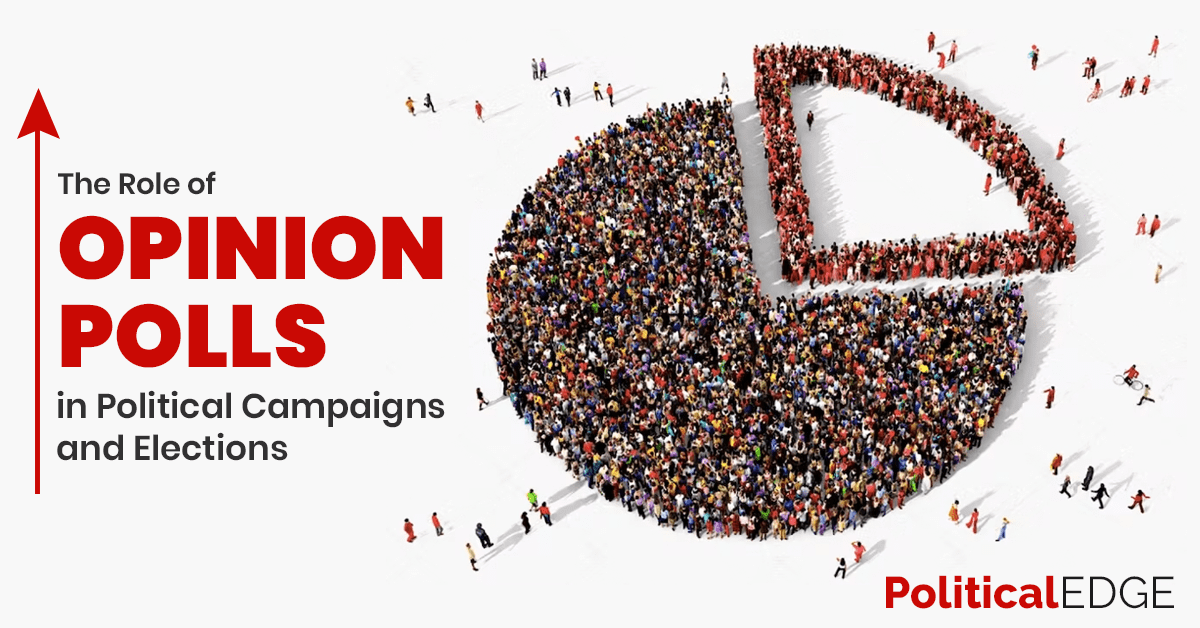
Opinion polls have become an integral part of political campaigns and elections in modern times. These surveys play a significant role in shaping public opinion, influencing campaign strategies, and helping voters make informed decisions. By gauging the sentiments and preferences of the electorate, opinion polls provide valuable insights into the political landscape, enabling candidates and parties to tailor their messages and mobilize their resources effectively. In this blog post, we will explore the crucial role of opinion polls in political campaigns and elections, highlighting their impact on democracy and the electoral process.
Political commentators and interested members of the public will consult opinion polls in the run-up to an election to predict how outcomes might turn out. However, it is important to understand the use and importance of opinion polls in political campaigns and elections.
What are Public Opinion Polls?
The word “public opinion” describes the typical attitudes and viewpoints of a sizable population. Researchers employ public opinion polls to gauge these attitudes and opinions.
Surveys or enquiries aimed at gathering data on public opinion so that it can be measured and examined are known as public opinion polls. A trained interviewer would question a randomly selected sample of the public one-on-one during traditional polling procedures. However, as technology has advanced, internet surveys and polls have mostly replaced traditional polling methods.
What is the purpose of a Public Opinion Poll?
Opinion polls are useful because they tell decision-makers objectively about what the public wants, guiding policy creation. However, this necessitates pollsters to be both honest and accurate in their statistical methodology to serve various purposes as mentioned below:
Shaping Public Opinion
When it comes to influencing public opinion during elections and political campaigns, opinion surveys are an essential tool. These polls capture the mood of the electorate by gathering information on their preferences, worries, and aspirations. Given that people frequently take the consensus as the truth, the publication of poll results may have an impact on voters’ attitudes. A politician or political party’s performance in polls might have a “bandwagon effect,” gaining more support and boosting their chances of winning. On the other hand, a drop in public trust and support can result from a negative polling performance.
Influencing Campaign Strategies
Campaign strategy for candidates and political parties are heavily influenced by opinion polls. These polls provide insightful information on the issues that matter to voters and the areas where politicians should concentrate their efforts. Opinion surveys help campaigns target their resources efficiently by identifying important demographics and geographic areas. A candidate can modify their pitch to emphasize their healthcare policy and appeal to voters who prioritize this subject, for example, if a poll finds that healthcare is the top worry for people.
Identifying Strength and Weaknesses
Campaigns can evaluate their strengths and weaknesses with the help of opinion polls. Candidates can find areas where they need to improve and modify their strategy by monitoring their performance over time and comparing it to that of their rivals. For instance, a candidate can make targeted appeals or change their policies to appeal to certain voters if a poll indicates that they are losing among a particular set of voters in a demographic.
Informed Decision-Making
Opinion surveys give voters the knowledge they need about candidates and parties, enabling them to make wise decisions. Voters can judge a politician’s suitability for office using the information provided by these surveys about their popularity and believability. Opinion polls help voters make decisions that are in line with their personal views by determining public favor or disapproval of particular candidates or programmes.
Furthermore, opinion polls encourage engagement and participation in the electoral process. When individuals see that their opinions are being sought and valued, they are more likely to take an active interest in politics, register to vote, and turn out on election day. This fosters a healthier democratic culture by ensuring that citizens have a say in the governance of their country.
Conclusion
In political campaigns and elections, opinion surveys are essential for influencing public opinion, influencing campaign tactics, and facilitating informed decision-making. These polls give politicians and parties insight into the preferences and issues that voters care about, allowing them to better target their messages and resources. By focusing on important subjects and demographics, opinion surveys help candidates increase their chances of winning by directing campaign plans. Additionally, opinion polls empower voters too by giving voters important information, assisting them in making decisions, and encouraging active engagement in the political process.
About the Author
PoliticalEDGE, India’s leading political consulting firm, empowers people-centred political campaigns through our personalised and statistical data-driven consultancy. With 16 years of experience and a track record of servicing for 1100+ political leaders to win referendums, we offer full-service campaign consulting across India. Our three pillars—Targeted Communication, Systematic Activation, and Planned Movement of Leaders— are the key to driving success. From Municipal Corporations to State Chief Minister aspirants, we cater to diverse clients with individually customised services and support. Today, we facilitate a deep connection with each voter. So, shape your political future today with PoliticalEDGE’s integrated services.

